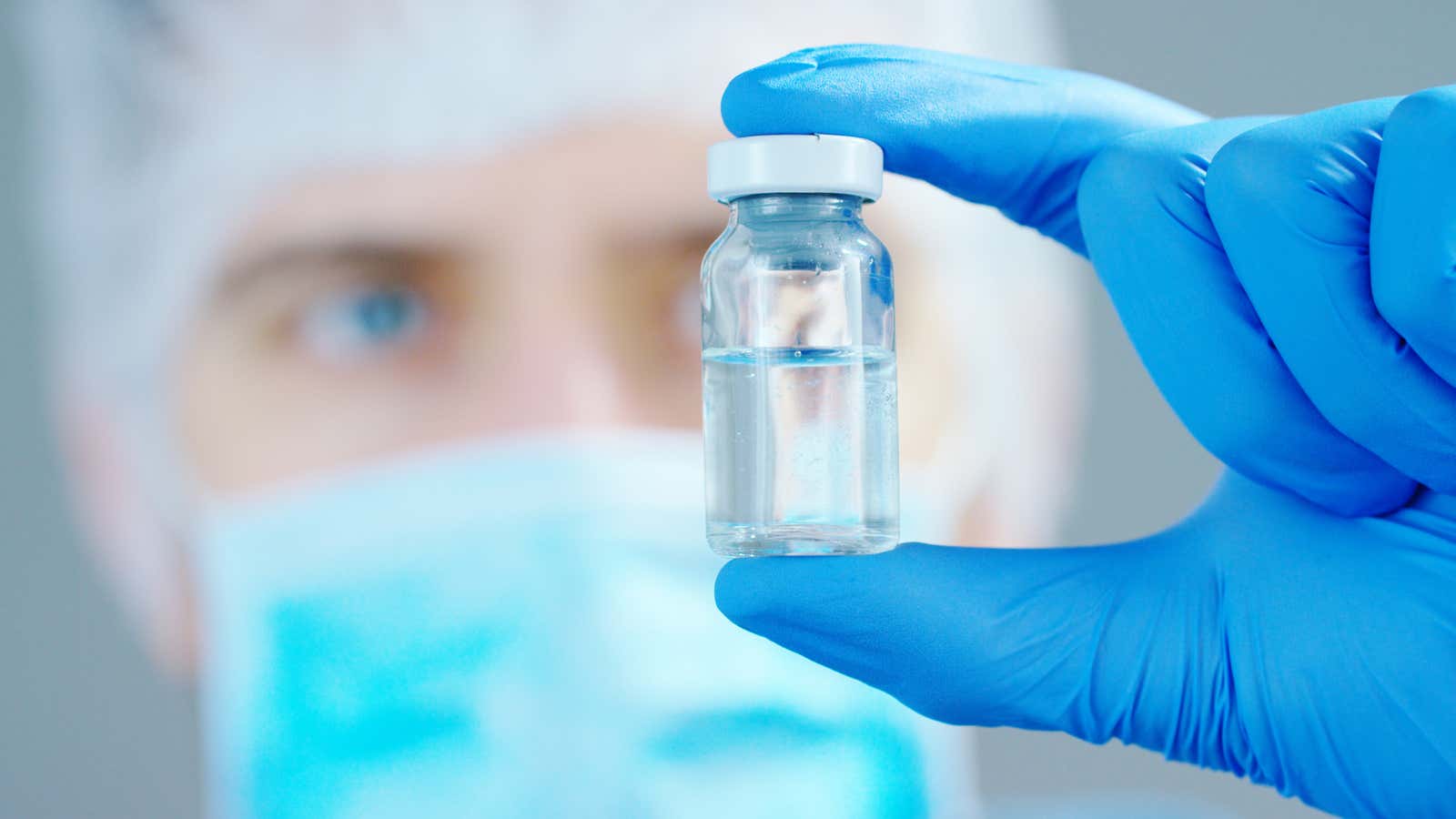What We Know About a Potential COVID-19 Vaccine

Based on the latest news, one would think a COVID-19 vaccine would be available soon. Unfortunately, this is not so. Experts agree that we are looking at 12 to 18 months before the vaccine becomes widely available.
So what do we know about a potential COVID-19 vaccine?
First of all, developing a vaccine takes time. Any vaccine that is approved goes through six stages of testing and approval. These stages are research phase, preclinical phase, clinical development, regulatory review and approval, manufacturing and quality control.
Potential Vaccine in Phase I Trial
The news we’ve seen about human trials of one vaccine being developed by Moderna and others being developed by a number of companies such as Johnson & Johnson or Inovio Pharmaceuticals sounds like a vaccine is just around the corner. Is not.
For just-started human trials, this is part of a Phase I study that is part of the clinical development phase. Human trials take place in three phases, during which more and more volunteers are being tested.
In a Phase I trial, a small number of healthy volunteers receive a dose of the vaccine and are then monitored. For the Moderna trial, 45 volunteers, ages 18 to 55, will receive two doses of the vaccine and will be monitored for six weeks.
If this Phase I trial is successful, it will be followed by Phase II and Phase III trials in which more people, including a wider range of ages, will receive doses of the vaccine and monitor them. For Phase II trials, several hundred people who are similar in age and characteristics to those for whom the vaccine is intended will be given doses of the vaccine and then tested for side effects. If this phase is successful, the Phase III study will reach even more people.
At each stage, the participants will be monitored for several weeks, which means that even in the best case, we are watching several months before the completion of the Phase III trials. And once a safe and effective vaccine is identified, it will take even longer to produce and distribute it so everyone can be protected.
Thorough testing is essential as it is vital to ensure that the vaccine is safe and effective. We would not want to rush into testing just to find out that a vaccine has dangerous side effects or that it does not work, thereby giving people a false sense of security.
Several vaccines in development
There is no guarantee that a particular vaccine being tested will be effective or safe. For this reason, several versions of the vaccine are in development.
This first vaccine to enter Phase I trials is unusual in that it uses messenger RNA , which is used as a template to make proteins. Most vaccines work by injecting a small or inactive portion of the virus that teaches your immune system how to deal with it if a person becomes infected in the future.
Instead, this particular vaccine injects a messenger RNA that your body will use to make virus-like proteins, which in turn will teach your immune system how to fight the virus. It should be noted that there are currently no widely available vaccines that work with this mechanism.
If this particular vaccine does not prove to be safe or effective, there are other, more conventional vaccines that are also in development, although they have not yet been clinically tested.
So we won’t have a vaccine anytime soon; I hope that in the end we will have it. In the meantime, we need to slow down the spread as much as possible.